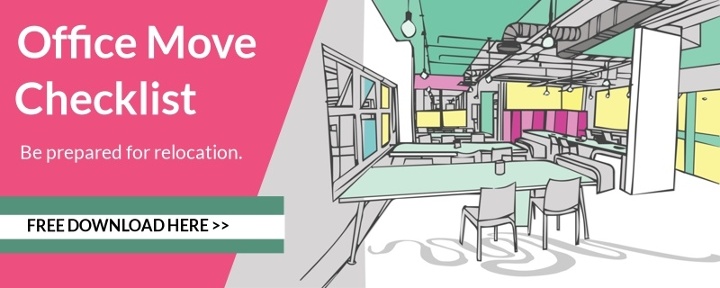Office Managers are unsung heroes. They do the invisible jobs most of us take for granted, but there’s no doubt about it - they earn their keep as the ‘go to’ person for just about everything.
A good office manager is at the heart of the business. They live and breathe office culture, promote a positive working environment and prove strong advocates for technology that boosts operational efficiency and simply make life easier.
That’s why they’re front and centre of any office move or major refurb if the current office space isn’t doing the business. They keep the office running smoothly day-to-day, while they plan and project-manage changes that will impact every employee and business function.
Labelling boxes and coordinating specialist removals teams doesn’t even scratch the surface. A move that includes a full IT relocation or major change to your telephone support system is no mean feat, so it helps to have a few tips up your sleeve to keep yourself sane and come out the other side of the office move looking like a company superhero.
Top tips for managing an office move
#1 Make yourself known as the Project Manager
If you’re picking up the mantle don’t be shy about making that clear. You need to be included in all discussions around the move, whether that concerns budget, IT considerations or customer communications, you should be part of the conversation, so you’re always fully informed. If needs be, create a move team with all the skills and experience you need to get the job done and define clear roles and responsibilities from the outset.
#2 Get your IT people on board early
Managing the relocation of your IT resources is central to any move, so your IT or Operations Manager needs to be involved. Business As Usual (or BAU) tasks will be their priority, so it’s wise to give them plenty of notice of what’s required of them regarding your company’s assets, devices and accessibility to ensure all staff are able to continue to access what they need to do their jobs seamlessly, whether they work from office devices or their own.
#3 Be honest about any skill gap
No one likes to admit when they don’t know how to do something, but when it comes to IT and telecoms, putting your hand up and asking for help is a much better option than messing up.
IT replication is one for the experts. It also takes time, so work with a service provider or specialist company from the get go who can guide you on relocating and transporting specialist equipment, as well as advise on the IT support you will need.
Outsourcing IT support will prove invaluable managing things like:
- New site or refurb evaluation
- Safe and secure IT relocation
- Tech and telecoms needs in your new space
- Floor planning
- Transport and storage
- Business continuity
- Disaster recovery planning
- Systems testing and going live after the move
#4 Communicate with the rest of the business
With any big project, there’s a temptation to hold off for the ‘big reveal’, but if you’re spinning lots of plates the best way to project confidence and maintain control is by meeting regularly, keeping time lines up to date and communicating changes (good or bad) as they happen.
Remember, forewarned is forearmed. By keeping the business in the loop, you’ll establish expectations and ensure no-one is caught off guard.
#5 Create a wrap up report
Take note of what went well, what could have been managed better and compile a list of the recommendations your service providers make along the way. You won’t be able to act on all of their suggestions, but you’ve paid for their knowledge and insight and might be able to use their advice to drive developments down the line.
#6 Build in some contingency
Whether it’s budget, time, resources or simply planning for the unknown, a little wriggle room goes a long way. Give yourself and the project enough room for inevitable change and an opportunity to react to some of the advice you get from your service providers along the way, and have a plan in place in the case of an unforeseen disaster.
If you need it, you have it in your back pocket and if you don’t, you’ll deliver early or under budget – you’re an Office Manager Rock star either way.
Need help with the planning? Check out our Office Move Checklist
- SHARE
- Tweet
-











